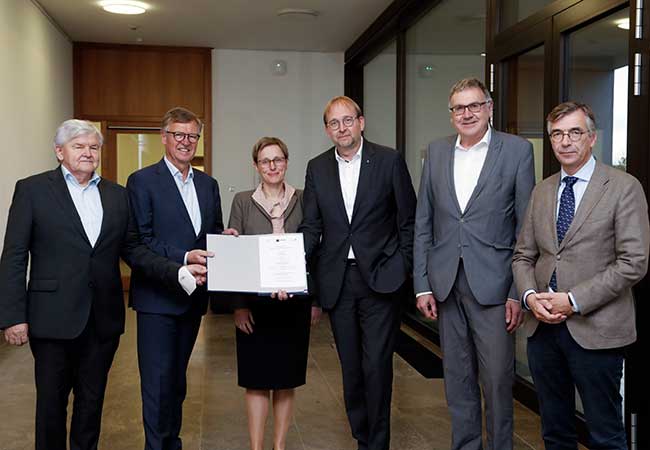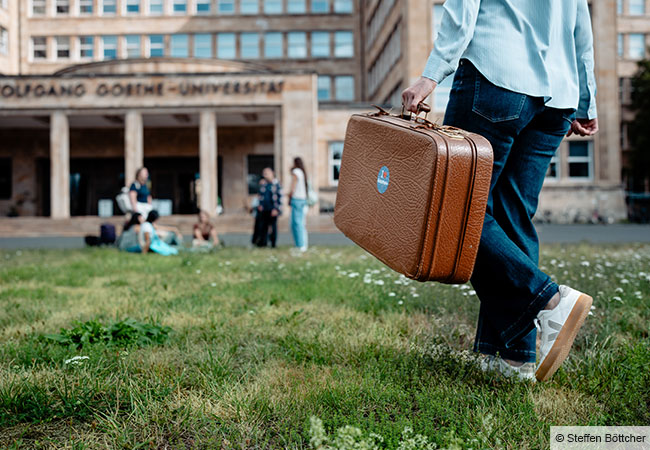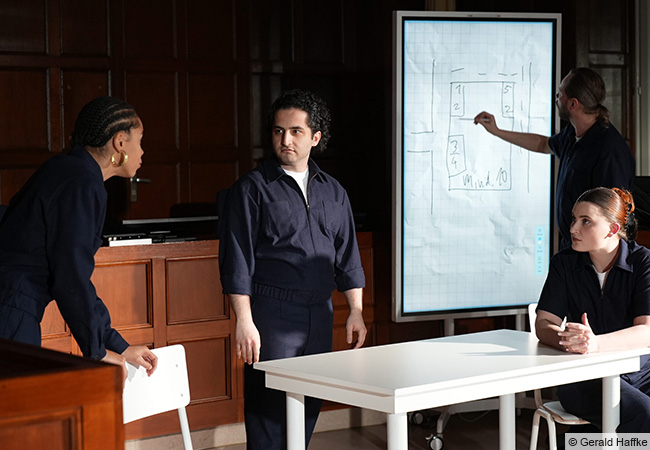A new endowed professorship in Digital Transformation and Work will enhance the social science research at the Goethe University and build on the tradition of critical social theory. The contract was signed by the two donors ProLife Foundation and Frankfurt University of Labour along with Goethe University.

Digital information, systems and culture have long been key parts of our day-to-day lives and have fundamentally changed the way we work and do business. Success in business is determined, for example, by whether the maximum amount of data is gathered and algorithms are expertly managed, whether the greatest attention is attracted from potential customers and whether offerings are delivered in real time. How is this change occurring and what are the social consequences of the transformation from the industrial to the digital age – for society and particularly for business and the world of work? How do new technologies change social practices and work processes, public opinion and forms of corporate participation and co-determination? The new endowed professorship at the Faculty of Social Sciences at Goethe University Frankfurt will explore these questions in depth.
The professorship is financed by an endowment fund from the ProLife Foundation and the University of Labour, an institution supported by the IG Metall metalworkers’ union and the German Trade Union Confederation (DGB). The contract was signed yesterday in the presence of the Dean of the Faculty of Social Sciences, Professor Christopher Daase, by Jürgen Eckert, CEO of the ProLife Foundation, Professor Martin Allespach, President of the University of Labour, Rainer Gröbel, Chancellor of the University of Labour, and Professor Enrico Schleiff, President of the Goethe University.
Eckert explained the objective of the new endowment fund: “With this professorship, we want to further understanding of the social consequences of digitization. We can see the technical changes that are coming to the world of work all around us – but we are missing the narrative around what that actually means for people in their working world and living environment”. Gröbel went on to say: “From our point of view, this is not about rejecting the digital transformation, but about the question of how we can impart knowledge and skills to deal with the transformation processes to students and employees in companies.” The donors emphasized that in choosing the Goethe University they are consciously aiming to draw on the tradition of critical social theory and develop the university’s strengths in social philosophy and social research.
“We are very pleased with the trust placed in Goethe University to make significant contributions to solving pressing global challenges in research and teaching”, said University President Schleiff. “The fund also gives us the opportunity to strengthen our profile area of Orders and Transmissions, in which colleagues from various faculties and centers at the Goethe University are primarily addressing the question: What does the fundamental digital transformation and its consequences mean for the future of people, nature and the environment?”
“For the Faculty of Social Sciences”, says the dean of the faculty, Professor Christopher Daase, “the new professorship offers the holder the opportunity to sharpen their profile in critical social research and demonstrate their political and social relevance.”
The ProLife Foundation and the University of Labour already have links to the Goethe University and the Institute for Social Research, the Sigmund Freud Institute, and the Frobenius Institute through their project funding. The endowed professorship will increase the collaboration between the Goethe University and the University of Labour.







